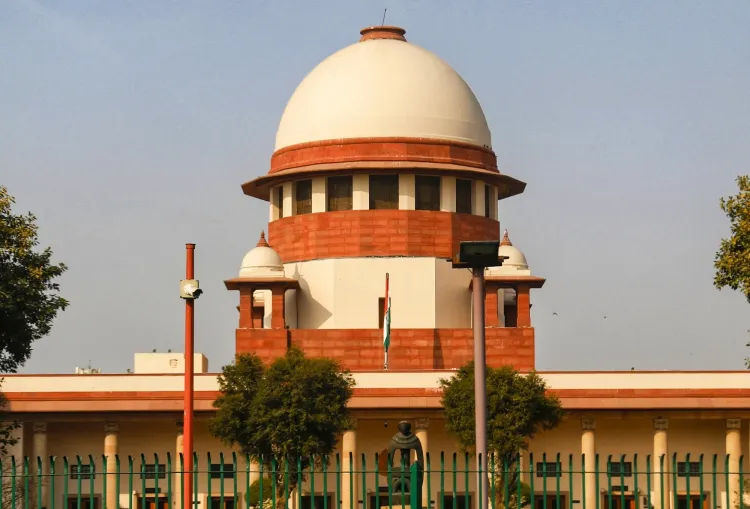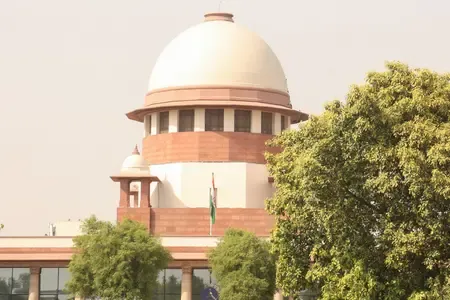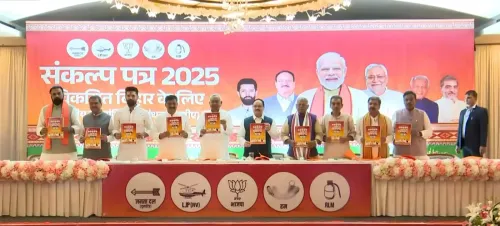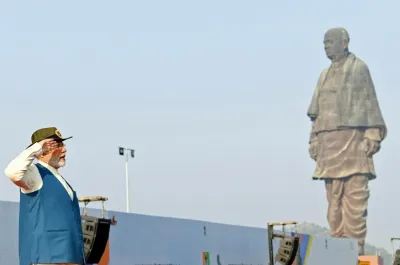Supreme Court Dismisses Requests for Immediate Enforcement of Women's Reservation Legislation

New Delhi, Jan 10 (NationPress) On Friday, the Supreme Court dismissed a public interest litigation (PIL) that sought the immediate enforcement of the Nari Shakti Vandan Adhiniyam Bill 2023, which was enacted in September 2023 during a special parliamentary session. This legislation stipulates a 33 percent reservation for women in the Lok Sabha and all state Assemblies, including Delhi.
A bench consisting of Justices Bela M. Trivedi and P.B. Varale stated that the petition did not demonstrate a breach of any fundamental rights, which is the sole basis for a writ petition to be entertained directly by the apex court under Article 32 of the Constitution.
The bench led by Justice Trivedi noted that the petitioners could approach their respective high court to contest the regulation that necessitates the conduct of a census and subsequent delimitation as a condition for implementing the women’s reservation law.
The constitutional amendment aimed at establishing the one-third reservation for women is not designed to modify the current composition of the Lok Sabha or existing Legislative Assemblies but will take effect once they are reconstituted after their respective tenures or upon dissolution for any reason.
It is anticipated that the women's reservation quota will be fully implemented across the nation by 2029, following the completion of the delimitation process, and will be maintained for a duration of 15 years.
In January of the previous year, the Supreme Court also dismissed a plea from an advocate urging the implementation of the Women Reservation Bill ahead of the 2024 Lok Sabha elections, based on the existing census data.
A bench led by Justice Sanjiv Khanna (currently the Chief Justice of India) had instructed petitioner Yogamaya M.G. to instead file an application to join the pending cases concerning the same issue.
The bench, which also included Justice Dipankar Datta, permitted the petitioner to withdraw her public interest litigation (PIL), aiming to avoid multiple litigations on the matter.
In her application, advocate Yogamaya M.G. sought directives for the urgent and time-sensitive enforcement of the Constitution (One Hundred Twenty-Eighth Amendment) Bill based on the 2001 or 2011 census data in accordance with the Delimitation Commission Act, 2002 for the upcoming Lok Sabha Elections in 2024. She argued that reliance on an uncertain event, in conjunction with delays in the 2021 census, undermines the statute's effective implementation.









